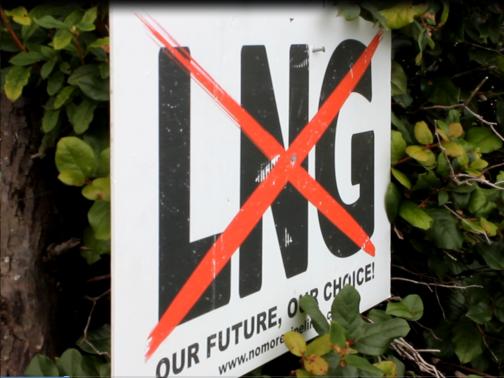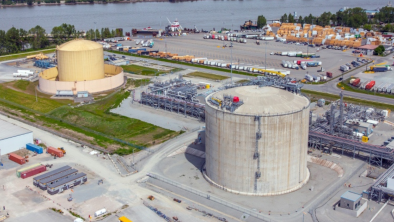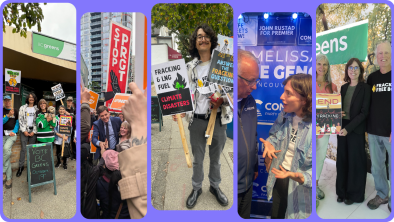Trudeau Liberals Approve Petronas LNG Project on BC’s Coast
The Tyee

Environmentalists immediately condemn decision: ‘Honestly, we expected better.The federal government has given environmental approval for Pacific NorthWest LNG to build a liquefied natural gas terminal at the mouth of the Skeena River in British Columbia.
Championed by B.C. Premier Christy Clark, the project has been strongly opposed by environmental groups and some First Nations concerned about an increase in greenhouse gas emissions and the impact on wild salmon.
Pacific NorthWest LNG is largely owned by Petronas, Malaysia’s national oil company.
“This project was subject to a rigorous environmental assessment,” said Catherine McKenna, the federal minister of environment and climate change, who made the announcement in Richmond last night.
The approval comes with 190 legally binding conditions, including a hard cap on greenhouse gas emissions that will reduce them by 20 per cent, McKenna said. “We do believe the environment and the economy go together and we need to be demonstrating that to Canadians, and we worked very hard on this project to show that’s exactly the case.”
“This is a project that will benefit all Canadians,” said Premier Clark. B.C. has as much hydrocarbon energy as Alberta and wants to get its natural gas to markets in Asia sustainably, she said.
The environmental approval was the last major requirement so that the company can make a final investment decision, Clark said, but added the decision will depend on market conditions and she expects it could take awhile until it’s reached.
Within minutes of the widely anticipated announcement, various environmental groups released statements condemning the decision.
“We’re absolutely appalled that this project has been given the go-ahead,” said Wilderness Committee climate campaigner Peter McCartney. “Pacific NorthWest LNG poses a grave threat to our global climate, salmon in the Skeena River and the way of life of Indigenous people who live there.”
If built, the project would be among the largest single point emitters of climate pollution in Canada, said Karen Mahon, national director of Stand. “Honestly, we expected better…. This government cannot make decisions like this while honouring their promises on climate change.”
“Approving this project is inconsistent with the federal government’s commitments to lead on climate change and clean innovation,” said Merran Smith, the executive director of Clean Energy Canada. “Bottom line, this decision is not in the best interests of Canadians or British Columbians. Approving this project does not unlock the kind of innovation, jobs and clean growth that will drive Canada’s economic prosperity in the years ahead.”
Matt Horne, the associate B.C. director at the Pembina Institute, said the project fails to minimize greenhouse gas emissions. “Pacific NorthWest LNG simply does not fit into a credible plan for B.C. to achieve its legislated climate targets.”
“Canada’s second largest salmon run, on the Skeena River, may have had its death warrant signed today, through a reckless disregard for the dangers the Petronas fracked gas plant poses to hundreds of millions of juvenile salmon in the Skeena estuary,” said the Sierra Club of B.C.’s campaigns director Caitlyn Vernon. “The Trudeau government’s lofty rhetoric on climate has proven nothing more than sunny ways talking points.”
The Trudeau government’s actions have betrayed the many Canadians who voted for action on climate change, she said.
In the 2013 election campaign, Clark campaigned on a “debt free B.C.” platform based on the promises of a liquefied natural gas industry.
The throne speech ahead of that election said there would be three LNG facilities operational by 2020, 39,000 construction jobs, 75,000 ongoing jobs, $100 billion in revenue and $1 trillion in “cumulative GDP benefit” over 30 years.There are 20 proposals for LNG projects throughout B.C., but amid low prices for oil and gas no company has made a final decision to move ahead.
Read the original article here


